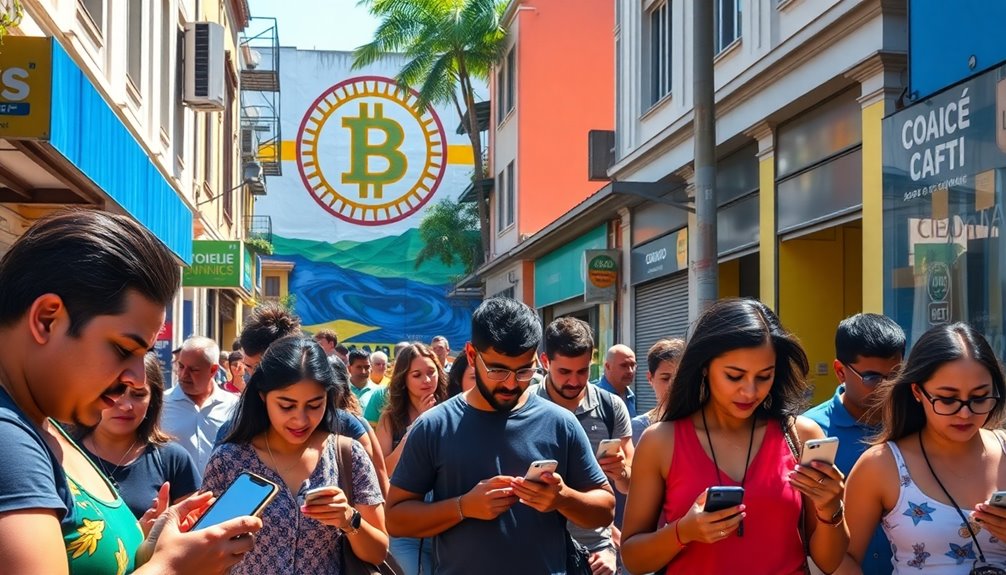You're probably aware that financial landscapes are shifting, especially in Brazil. Recent findings show that about 15% of Brazilians are considering a switch from traditional banking to cryptocurrency. This trend raises questions about the dissatisfaction with conventional banks and the allure of digital currencies. What does this mean for the future of financial services in Brazil? The implications could be far-reaching, and there's much more to unpack on this topic.

As Brazil continues to embrace digital finance, around 12% of its population—approximately 26 million people—now owns cryptocurrency. This growing interest in crypto reflects a significant shift in the financial landscape, with findings from Yougov revealing that about 15% of Brazilians are willing to switch from traditional banking systems to crypto alternatives. This trend isn't just about a new investment avenue; it represents a fundamental change in how you might view and access financial services.
Restricted access to traditional banking has driven many Brazilians toward cryptocurrencies. With around 41% of the population having owned or currently owning digital assets, it's clear that crypto offers a pathway to financial inclusion for those who struggle to access conventional banking services. By embracing cryptocurrency, you can engage in selling, lending, and investing without the barriers posed by traditional banks.
The appeal of alternative financial solutions is particularly strong in a country where economic growth and poverty reduction are ongoing challenges. You might be intrigued to know that Brazilians are allocating between 7% and 35% of their assets to cryptocurrency, indicating a level of confidence in its potential. Although some perceive crypto as a speculative investment due to its volatility, the interest remains robust. Brazil ranks among the top ten countries for crypto adoption, specifically holding the 6th position globally, suggesting that many of you see value in taking calculated risks with your portfolios. The stock market still reigns as the preferred investment choice for many, but the growing crypto adoption hints at a willingness to diversify.
Moreover, Brazilian banks are prioritizing blockchain technology, aiming to innovate and make financial services more user-friendly. This focus on digitalization aligns with the regulatory support from the Securities and Exchange Commission, which backs blockchain and tokenization initiatives. However, improving digital literacy among users will be crucial for maximizing the benefits of these advancements.
The preference for stablecoins among Brazilians highlights the need for stability and USD exposure in trading activities. With Binance dominating the BRL market, it's evident that trading volumes are surging, facilitating smoother international transactions.
As you consider transitioning from traditional banking to crypto systems, it's essential to weigh the benefits against the risks, but the momentum in Brazil suggests that many are eager to embrace this digital financial future.









